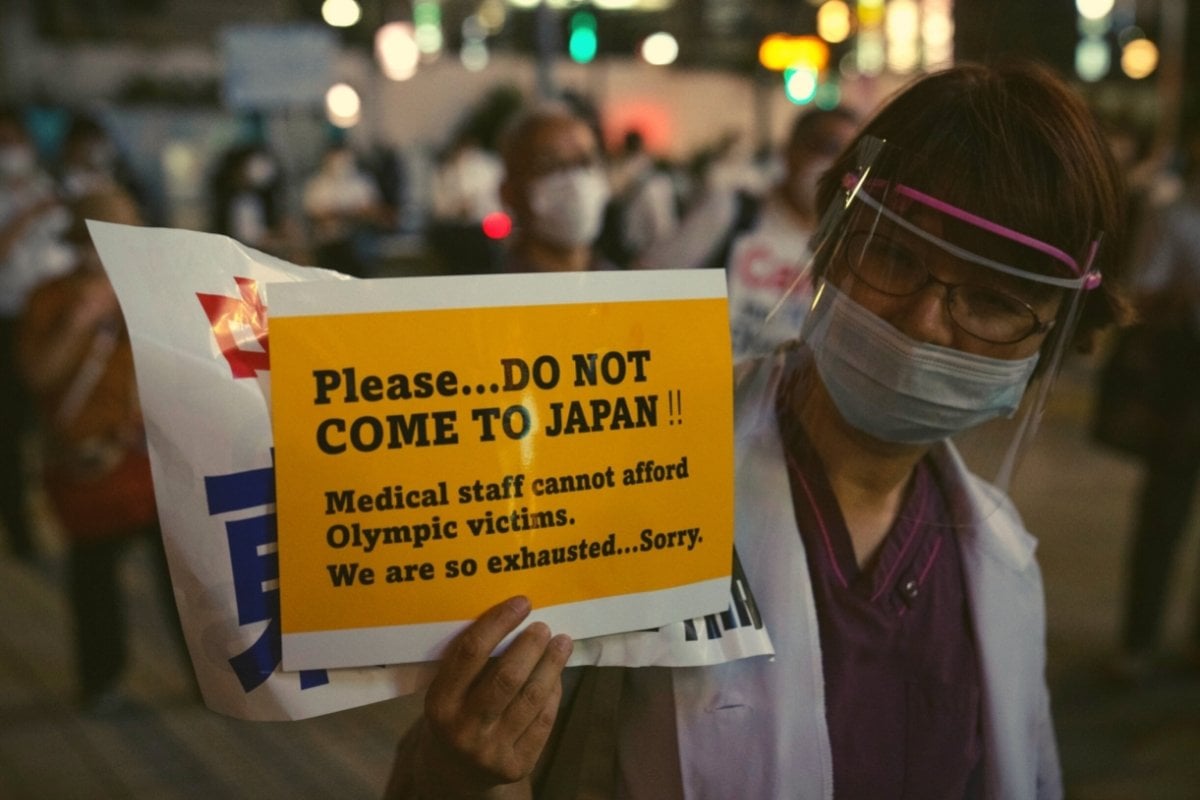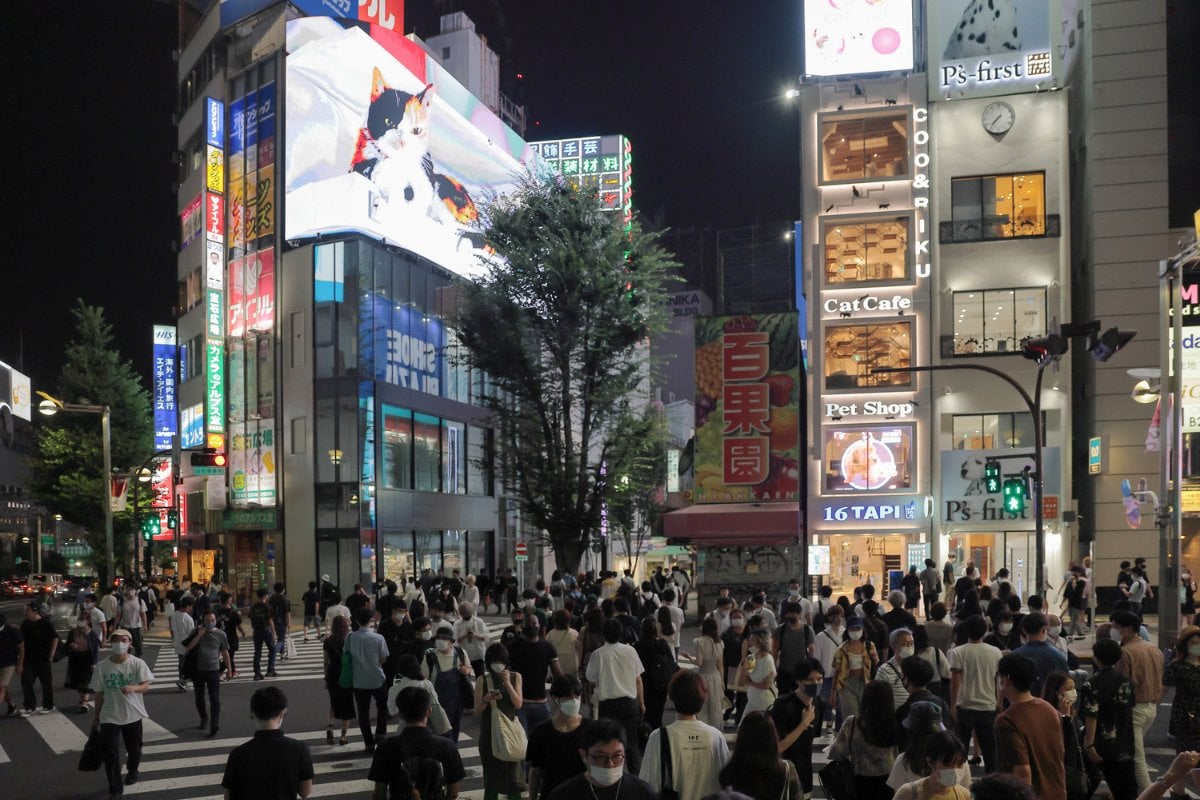
Thursday was another headline-worthy day at the Tokyo Olympic Games.
American Sunisa Lee won gold in the women's all-round gymnastics after the favourite, Simone Biles, made her much-talked-about exit. Brisbane's Izaac Stubblety-Cook won the 200m breaststroke in Olympic Record time, and Jess Fox paddled her way to gold in the women's canoe.
But outside the stadiums, and beyond the fences surrounding the Olympic village, Thursday was also the day that the host nation witnessed a far more sombre event.
For the first time since the COVID-19 pandemic emerged in early 2020, Japan's daily total of new COVID-19 cases went beyond 10,000.
More than a third of the diagnoses were recorded in the capital, which entered a state of emergency shortly before the Games began.
Listen: What it takes to get to the Olympics and Paralympics in the middle of a pandemic. Post continues below.
On Friday, Japan's Prime Minister Yoshihide Suga extended emergency measures in Tokyo until the end of August and expanded them to a further four prefectures: Saitama, Kanagawa and Chiba, which are near Tokyo, and in Osaka to the west. He warned that the nation's health system could collapse if cases continued to climb at their current rate.
In the last month alone, the number of people requiring hospitalisation in Tokyo alone has doubled, according to the city's health authorities.
And as of Friday, the capital's hospitals were at just over half their capacity of 6,000 beds, with some already full. Meanwhile, more than 6,100 patients were waiting at home while health centres decide where they will be treated.
Doctors at Tokyo Hikifune Hospital told local media this week that they had no free beds and were short on staff, having sent eight employees to Olympic venues.





























































































